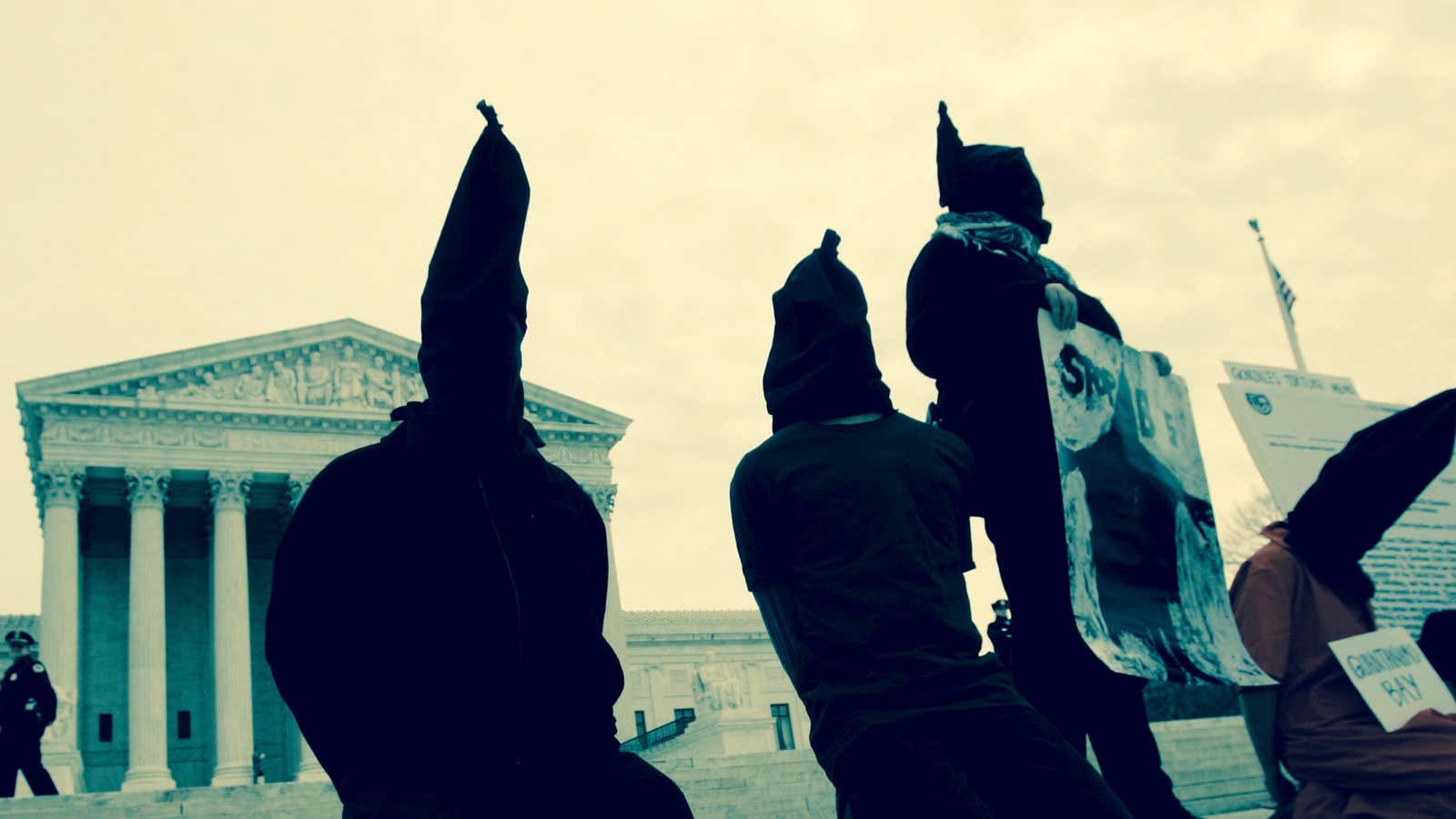Donald Trump is a straight talker, or that’s his supposed selling point. Unlike other US presidents, who felt awkward discussing torture, the new commander-in-chief seems at ease with the notion of “extreme interrogation” techniques.
In an interview with ABC News on Jan. 25, Trump was asked if he believed in the use of torture. He replied, “Absolutely I feel it works. I haven’t seen it work. But I think it works…. I want to do everything within the bounds of what you’re allowed to do legally.”
The president said he’d rely on guidance from his military advisors in deciding whether to actually use torture techniques, but he justified their general use. ”We’re not playing on an even field,” he said. ”When they’re chopping off the heads of our people and other people…when ISIS is doing things that nobody has ever heard of since medieval times, would I feel strongly about waterboarding? As far as I’m concerned, we have to fight fire with fire.”
In other words, torture is justified by the barbarism of others. It’s the opposite of “when they go low, we go high.” This reasoning isn’t even sound in the schoolyard, and definitely doesn’t work as an ethical proposition.
The president’s certainty is disconcerting to some. In First Things, a journal on religion and public life, Florida State University philosophy professor John Schwenkler called Trump’s talk of torture “strikingly frank.” But not in a good way.
On the one hand, the president’s openness could be seen as a refreshing change from past administrations that approved torture but referred to it euphemistically. Under George W. Bush, for example, the American government admitted to using “enhanced interrogation” and “special methods of questioning.” Schwenkler writes, “It is a small virtue of Trump’s post-PC era that we no longer have to keep up this façade.”
Still, he notes, there’s something worrisome about Trump’s comfort using terms others have so avidly shirked. Bush’s euphemisms revealed moral compunction, some sense that torturing people is fundamentally questionable and therefore must be hidden in abstract language.
Under Barack Obama, waterboarding and other forms of torture were banned via executive order in 2009, although his record wasn’t entirely clean, and he admitted in 2014, “We tortured some folks.” Obama spoke the word “torture” when opposing it or admitting it with shame. But the new president’s brazenness seems to indicate the opposite—that he’s not overly burdened with concerns.
Schwenkler argues that talking about torture should feel shameful because the act is morally reprehensible. In other words, torture is a dirty word, truly taboo, because it stands for inhumanity. “[T]here are some ways of acting that we can identify as evil no matter their consequences, and must bravely eschew even when bad consequences threaten. Torture is one of these,” he writes. “Calling it by its name should be a first step toward demanding that it not be done.”
At least one of the current president’s chosen military advisors would agree with this statement. James N. Mattis, Trump’s pick for secretary of defense, is openly opposed to torture and prisoner mistreatment. Trump explained to the New York Times in November, “I was surprised, because he’s known as being, like, the toughest guy.”
Trump went on to tell a story: when he met Mattis, he told the former Marine Corp general that waterboarding worked—and was impressed when the military vet completely disagreed. Mattis reportedly replied, “Give me a pack of cigarettes and a couple of beers, and I do better with that than I do with torture.”
